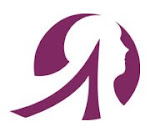Digital rights management (DRM) is an umbrella term that refers to access control technologies used by publishers and copyright holders to limit usage of digital media or devices.
It may also refer to restrictions associated with specific instances of digital works or devices. DRM overlaps with software copy protection to some extent, however the term "DRM" is usually applied to creative media (music, films, etc.) whereas the term "copy protection" tends to refer to copy protection mechanisms in computer software.
Digital rights management has and is being used by content provider companies such as Sony, Apple Inc., Microsoft and the BBC.
The use of digital rights management has been controversial. Advocates argue it is necessary for copyright holders to prevent unauthorized duplication of their work to ensure continued revenue streams. Opponents, such as the Free Software Foundation, maintain that the use of the word "rights" is misleading and suggest that people instead use the term digital restrictions management. Their position is essentially that copyright holders are attempting to restrict use of copyrighted material in ways not covered by existing laws. The Electronic Frontier Foundation, and other opponents, also consider DRM systems to be anti-competitive practices.
In practice, all widely-used DRM systems have been defeated or circumvented when deployed to enough customers. Protection of audio and visual material is especially difficult due to the existence of the analog hole, and there are even suggestions that effective DRM is logically impossible for this reason.
Download ebooks on http://www.frenchtheory.com/ - See that post with different algorithms in metabole - See the journal French Metablog with today different posts -
PHONEREADER Library - - Jean-Philippe Pastor
skip to main |
skip to sidebar

Blogger
Google Book Search
BlogRing
Blog Archive
-
▼
2008
(65)
-
▼
November
(19)
- Kindle as favorite new gadget
- Kindle sold out
- What is DRM?
- Ebooks and ownership
- Kindle with cellular wireless integrated
- KindleFeeder for Kindle Ebooks Reader
- Classics makes it better for eBooks
- New app Classics for Ebooks
- PRS-700
- Must-Have Stanza
- Books under minute
- Iliad Reader in the UK
- Premier online eBook Shop
- BookShelf for iPhone
- Baen Books: the right reader for the right book
- Harvard library reconsiders its stance with Google
- Flip style Ebooks
- Publishers to accommodate small screens
- Google transforms our lives
-
▼
November
(19)

Labels
- 3G (2)
- adoption (1)
- aggregation (1)
- amazon (4)
- app (2)
- apple (2)
- application (3)
- barnes (1)
- bebook (1)
- benefit (1)
- bibliothèque (2)
- blog (1)
- browsing (1)
- building (1)
- cellular (1)
- changing (1)
- classics (1)
- click (1)
- color (1)
- commerce (1)
- communication (1)
- companion (1)
- connecté (3)
- connected (2)
- content (3)
- contract (1)
- control (2)
- converter (1)
- copyright (1)
- couleur (1)
- critics (1)
- device (10)
- distribution (3)
- download (2)
- drm (4)
- e-lit (1)
- ebook (18)
- economics (3)
- engine (1)
- epub (2)
- europeana (1)
- experience (1)
- feed (1)
- file (1)
- format (2)
- french (2)
- Google (8)
- habit (1)
- hypertext (3)
- idea (1)
- iliad (1)
- in-store (1)
- industry (1)
- innovation (2)
- internet mobile (6)
- iphone (11)
- irex (2)
- japon (1)
- journalism (1)
- keyword (1)
- kindle (12)
- library (3)
- license (1)
- link (1)
- linking (1)
- live (1)
- livre numérique (4)
- livrel (1)
- manga (1)
- marketing (1)
- media (3)
- method (1)
- microsoft (1)
- newspaper (2)
- note (1)
- now (1)
- Orange (3)
- ownership (1)
- paper (1)
- pdf (1)
- periodical (1)
- phonereader (9)
- phrase (1)
- platform (1)
- poetics (1)
- presse (1)
- print (3)
- problem (1)
- provider (1)
- prs (1)
- publisher (6)
- publishing (5)
- reader (15)
- reading (5)
- recession (1)
- resource (1)
- retailing (1)
- revolution (1)
- right (1)
- rss (1)
- sales (1)
- savings (1)
- scanning (2)
- screen (2)
- search (1)
- seller (1)
- sensitive (1)
- seo (1)
- service (1)
- SFR (2)
- shop (2)
- site (1)
- smartphone (1)
- software (5)
- sony (8)
- standart (2)
- stanza (4)
- startup (1)
- store (2)
- strategy (1)
- sucess (1)
- tablet (1)
- telephone (2)
- template (1)
- terminal (3)
- theory (1)
- video (2)
- vision (2)
- web (1)
- wifi (5)
- wireless (5)
- word (1)

